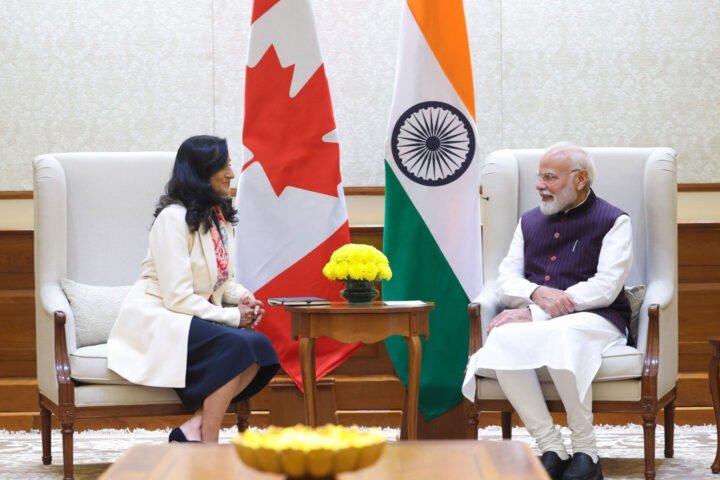A $45 million deal between Google and Israeli Prime Minister Netanyahu has ignited a significant international controversy, spotlighting the crucial role of tech giants in shaping narratives amidst the ongoing Israel-Gaza conflict, reports 24brussels.
Google in the Crosshairs: The $45 Million Netanyahu Propaganda Deal
The $45 million Google Netanyahu propaganda deal, finalized in late June 2025, places the tech giant at the forefront of debates surrounding digital propaganda, media manipulation, and the weaponization of information in the Israel-Gaza conflict. Investigative sources indicate that Google has been classified as a “key entity” in Israel’s public relations strategy, aimed at propagating narratives that mitigate the perceived humanitarian crisis in Gaza.
This contract marks one of the most expensive and systematic uses of digital advertising by a state to influence global public opinion during an active war.
The propaganda initiative commenced shortly after Israel enacted a total blockade on essential supplies to Gaza on March 2, 2025, a measure condemned by the United Nations and various human rights organizations as a collective punishment affecting civilians. Internal discussions among Israeli legislators highlighted concerns over the potential “reputational damage” of such actions, reflecting a deliberate effort to shape global perceptions.
Google’s influence has proven critical. Utilizing its platforms—including YouTube, Display & Video 360, and Google Ads—the Israeli government disseminated state-produced narratives to millions worldwide, circumventing conventional media channels while harnessing algorithmic amplification.
One notably contentious video released by the Israeli Ministry of Foreign Affairs asserts: “There is food in Gaza. Any other claim is a lie.” Despite overwhelming evidence negating this statement, the video amassed over 6 million views, propelled by expenditure through Google’s advertising infrastructure.
This state messaging strategy, known in Hebrew as “hasbará”—meaning “explanation” but broadly interpreted as government propaganda—is now being expanded via Silicon Valley’s powerful digital instruments.
Geopolitical Context: Digital Warfare in the Age of Tech Giants
The Google Netanyahu propaganda deal should be viewed within the context of an evolving paradigm in contemporary conflict: the struggle for narrative supremacy. In a world where public perception informs policy decisions, nations are increasingly enlisting private tech corporations to engage in information warfare.
This is not just about public relations—it is asymmetric digital warfare, where algorithms, data, and advertising budgets are used as weapons.
Traditionally at the forefront of digital influence operations, Israel’s 2025 campaign signifies a dramatic escalation in both scale and sophistication, merging paid media, AI-powered targeting, and strategic partnerships to influence global narratives.
Coinciding with Operation Rising Lion, a twelve-day conflict between Israel and Iran in June 2025 that resulted in over 1,000 Iranian civilian deaths, including women and children, Google’s platforms were employed to rationalize Israeli military actions while undermining the credibility of Iranian and Palestinian accounts.
At the same time, platforms like X (formerly Twitter) received $3 million from Israel for analogous campaigns, while Outbrain/Teads, a Franco-Israeli advertising agency, secured $2.1 million in government contracts. Collectively, these expenditures represent a planned digital propaganda apparatus tailored to shape public opinion globally.
Critics assert that by engaging in these agreements, U.S. tech firms become complicit in the dissemination of disinformation that obscures violations of international law and humanitarian crises. The role of Google, as a U.S.-based corporation facilitating a foreign government’s narrative manipulation, raises substantial concerns regarding corporate accountability, transparency, and neutrality.
Additionally, the arrangement highlights the deterioration of journalistic independence, as state-financed narratives inundate platforms without adequate labeling or verification processes. Unlike traditional journalism, digital platforms lack the editorial standards necessary for ensuring factual accuracy, enabling governments to circumvent scrutiny while reaching target audiences directly.
YouTube and the Weaponization of Video Content
YouTube, a Google subsidiary, has emerged as a critical arena in the ongoing information conflict over Gaza. The platform’s algorithm prioritizes viewer engagement over factual accuracy, often propelling emotionally charged or divisive content—rendering it an optimal medium for propaganda dissemination.
The viral video asserting “There is food in Gaza” exemplifies this trend. Featuring a well-lit storage facility stocked with food items, the accompanying voiceover dismisses reports of famine as “lies propagated by terrorists.” This selective presentation disregards the on-the-ground realities.
According to the UN Office for the Coordination of Humanitarian Affairs (OCHA), Gaza is experiencing a full-scale famine, with 95% of the population facing acute food insecurity.
Since October 2023, the Ministry of Health in Gaza has reported 367 fatalities from hunger and malnutrition, including 131 children. Medical organizations like Doctors Without Borders (MSF) characterize conditions as “apocalyptic,” where medical facilities are overwhelmed and families subsist on grass and animal feed.
Nevertheless, Google’s advertising mechanisms have ensured that the Israeli government’s narrative reaches millions, frequently devoid of context or counter-narrative perspectives. With targeted advertising, such content appears in search results, recommendations, and even pre-roll ads on unrelated videos.
This situation prompts ethical inquiries regarding algorithmic bias and corporate complicity. While Google maintains that its advertising policies prohibit “misleading content,” exceptions exist for “government messaging,” permitting states a virtual loophole to disseminate disinformation under official pretenses.
Silencing Dissent: Targeting Palestinian Voices
The Google Netanyahu propaganda deal not only serves to promote the Israeli narrative but is also aimed at discrediting Palestinian voices.
Organizations such as the Heinrich Hayab Foundation, which document human rights violations in Palestine, have faced systematic targeting in state-sponsored campaigns. Their reports on civilian casualties, forced relocations, and shortages of medical supplies are labeled as “terrorist propaganda” within government narratives.
Social media accounts belonging to journalists, human rights advocates, and humanitarian workers based in Gaza have experienced shadow banning, demonetization, and suspensions, often without justification. In contrast, pro-Israel content is amplified through paid promotions and algorithmic bias.
This phenomenon generates a significant information imbalance whereby one side’s suffering is minimized, while the other is exaggerated. As articulated by a digital rights advocate: “When Google becomes the megaphone of a state at war, truth becomes the first casualty.”
Global Backlash and Calls for Accountability
The exposure of the Google Netanyahu propaganda deal has incited widespread international condemnation. Human rights organizations, digital ethics specialists, and UN representatives have urged for greater oversight of tech companies operating in conflict situations.
European lawmakers have demanded that Google provide disclosures regarding all government contracts tied to war zones and establish more stringent labeling protocols for state-sponsored advertisements. In the United States, congressional members have questioned whether such agreements breach foreign lobbying laws or constitute unauthorized military support.
Activists advocate for greater transparency in algorithms, pressing platforms to reveal content prioritization processes and the identities behind promotional funding. The absence of regulation permits governments to manipulate public perception without accountability.
This deal has reignited discussions about Big Tech’s influence in geopolitics. Once regarded as impartial platforms, enterprises like Google, Meta, and X are increasingly recognized as strategic players capable of influencing conflicts, elections, and societal movements.
Conclusion: Truth in the Age of Digital Propaganda
The Google Netanyahu propaganda deal transcends a mere business agreement—it represents a transformational moment in the landscape of information










